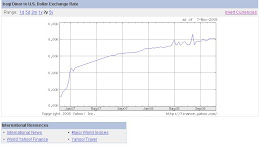The minister said he held constructive talks with Kuwait's Energy Minister and rotating OPEC Chairman Sheikh Ahmad Al-Fahad Al-Sabah, noting that his country has received up to 60 billion US dollars in aid from Kuwait, allocated for education and health.
On oil supply, Bahar Al-Oloum said that there is enough supply in the oil market, but that the OPEC ministerial decision to raise production by 500,000 barrels per day comes to calm consumer concerns and bring stability and balance to the market.
The minister added that there is a surplus of close to one million barrels per day, stressing that oil prices may temporarily drop and then increase once again if new refinery capacity is not introduced to the market.
On Iraq's oil production capacity, he said that over the past two months his country had produced 2.4 million barrels per day of which 1.8 million were for export, adding that production is expected to reach three million barrels.
As for being subjected to OPEC quotas, Bahar Al-Oloum said that the current circumstances of Iraq prevent this and that the issue would be reviewed once production levels reach three million barrels per day.
He explained that Iraq is facing many challenges, the most prominent being that of security, as well as investments in the oil sector which has deteriorated due to years of war and sanctions.
The optimistic plan for Iraq is to bring its production levels to five or six million barrels per day by 2010, stressing that this would need not only national efforts, but also for foreign investments.
Activating joint interests with neighboring states would bring greater security to the region and contribute to a flourishing economy, he concluded. (Source) Kuna

